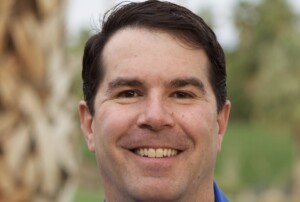
This article was originally written by Bill Kramer and published on Next Billion.
Eight men are as wealthy as the poorest half of the world, according to Oxfam. If you have worked on poverty issues at all, you know the general outlines of inequality. Nevertheless, it still has the power to shock the conscience.
We can highlight a few of the facts in the Oxfam briefing paper, “An Economy for the 99%”, published in January.
The report deserves your attention:
- Today, the top one percent owns more wealth than everyone else combined;
- In the U.S., the bottom half of the population has seen zero income growth while the top
one percent has seen a 300 percent increase over the past 30 years, according to Thomas
Piketty; - Intergenerational transfer of wealth by just 500 rich people over the next 20 years, $2.1 trillion is more than the GDP of India with its 1.3 billion people.
How did we get here? And, one a related note, how do we get out of this unsupportable situation? These are unquestionably critical and pressing questions for those of us “in the business,” but it’s fair to say that they should be equally important to everyone, for the accelerating pace of inequality and poverty increases crime and instability, fosters social unrest, and severely hampers efforts to reverse course.
So, let’s address the first question. The Oxfam briefing paper, as well as many other observers, lays the responsibility directly at the feet of an ideology, neoliberalism, which has provided the energy and justification for economic policies whose results are now on display. Neoliberalism (and Keynesianism) is a relatively new phenomenon. It emerged largely from the ashes of World War II, as the victorious capitalist states, relying on the recommendations of a small group of neoclassical economists who put their faith in corporate capitalism to rebuild the devastated economies of Europe (and to a lesser extent, Asia) in the face of a perceived communist Soviet threat and, just a few years later, a similar threat in the People’s Republic of China. Neoliberalism got a huge boost
in the U.S. in the 1970s through the economists at the University of Chicago, starting with Milton Friedman.
Some of the principal tenets of neoliberalism include:
- The goal of the economy and business is to generate financial wealth;
- The freedom of the individual (person or corporation) is the primary societal
value; - The government should be small, limited to protecting individuals and corporations
and their private property; - If we just let the free market sort things out, all will be well.
One of the fundamental, but usually unacknowledged assumptions of neoliberalism is that man is selfish and that the markets are an efficient way in which to channel that basic human trait. The pursuit of profit is a handy and useful stand-in for such selfish behavior. It’s a simple and neat narrative: “Hey, we were made this way, so go with it.” While there is no doubt that self-interested behavior is common, considerable research points in the opposite direction. The old narrative was based on assumptions that scientists now reject.
Psychologists, evolutionary biologists, and anthropologists and others find that we seek to meet our needs. But more than that, people seek goodness, connection and caring; we desire to be rewarded for meaningful contributions with a decent living but are not primarily motivated by acquiring wealth.
Our capacity for—indeed, need for—social behavior in the community begins to point us to an alternative philosophy, one that goes beyond the raw, monomaniacal pursuit of profit, one that measures human progress in ways other than GDP. The Oxfam report puts it this way: “We need to measure human progress using the many alternative measures available.
These new measures should fully account for the unpaid work of women worldwide. They must reflect not just the scale of human activity but how income and wealth are distributed. They must be closely linked to sustainability, helping to build a better world today and for future generations. This will enable us to measure the true progress of our societies.” Good sentiments. But where to start turning words into action?
As it happens, there are a number of folks focused on just that, and I am working with some of them. One is L. Hunter Lovins, founder of Natural Capitalism Solutions. With Paul Hawken and Amory Lovins, Hunter was the co-author of “Natural Capitalism: Creating the Next Industrial Revolution,” which has sold more than 2 million copies since its 1999 publication. That book imagined an economy
in which the biological realities of the natural capital—resources and living systems—were fully valued. It staked out a vision of a sustainable economy and the industrial revolution it could power. The conclusions of the Oxfam report owe a good deal to the natural capital framework.
Entrepreneurs and academics, inspired by “Natural Capitalism” and other foundational works, have been cultivating their own vineyards—the financial system, systems theory, ecological systems, and more—to better understand the dynamics of a new economy.
These empirical studies and theoretical frameworks are coming together under the general umbrella of “regenerative future” studies. The regenerative future is a world in which, when natural systems are fully understood and valued macroeconomically (by companies) and macroeconomically (at the national and global level), we will be in a position not just to sustain ecosystems and everything that is dependent on them, but, in fact, to begin to restore them to optimal health and productivity.
Each actor in this new realm, from his or her own perspective, is seeking to understand the inter-relationships of many disciplines that previously were considered separate and to bring them together in ways both academically stringent and real-world practice.
John Fullerton, for example, after a career on Wall Street with Morgan Stanley, has turned his mind to what he calls “regenerative capitalism.” He has created the Capital Institute to carry out the work of translating his years of investment experience into a holistic approach to a more sustainable future, without turning his back on the capitalist system.
Or take a look at the work of Robert Costanza, the “father” of ecological economics, a trans-disciplinary approach which is, in his words, “a bridge across not only ecology and economics but also psychology, anthropology, archaeology, and history … necessary to get a more integrated picture of how humans have interacted with their environment in the past and how they might interact in the future … an attempt to look at humans embedded in their ecological life-support system, not separate from the environment.”
An Oxfam senior researcher for many years, Kate Raworth, now working independently (a “renegade economist,” she calls herself), has been developing “Doughnut Economics,” the deep empirical study of planetary boundaries, which she describes this way: “Humanity’s 21st century challenge is to meet the needs of all within the means of the planet. In other words, to ensure that no one falls short on life’s essential needs (from food and housing to health care and political voice) while ensuring that collectively we do not overshoot our pressure on Earth’s life-supporting systems, on which we fundamentally depend. The Doughnut of social and planetary boundaries is a playfully serious approach to framing that challenge, and it acts as a compass for human progress this century.”
Many more could be added to this short list. But the point is made: Serious, practical and smart people are working today on an alternative approach to neoliberal ideology and policies. I find this work to be a compelling complement to the work that Al Hammond, Rob Katz, and I, along with other colleagues, did at the World Resources Institute as we tried to better understand low-income communities and their relationship to their own, and broader, economies. We looked through the lens of business engagement with poor communities.
Regenerative economics is a significant extension, focused not on business models but on systems and frameworks and the necessity for new, non-neoliberal narratives.
For myself, I am totally in synch with this idea, attributed to the novelist William Gibson: The future is already here; it’s just badly distributed. What we need to do now is find, aggregate, and communicate the positive future that is already happening.






